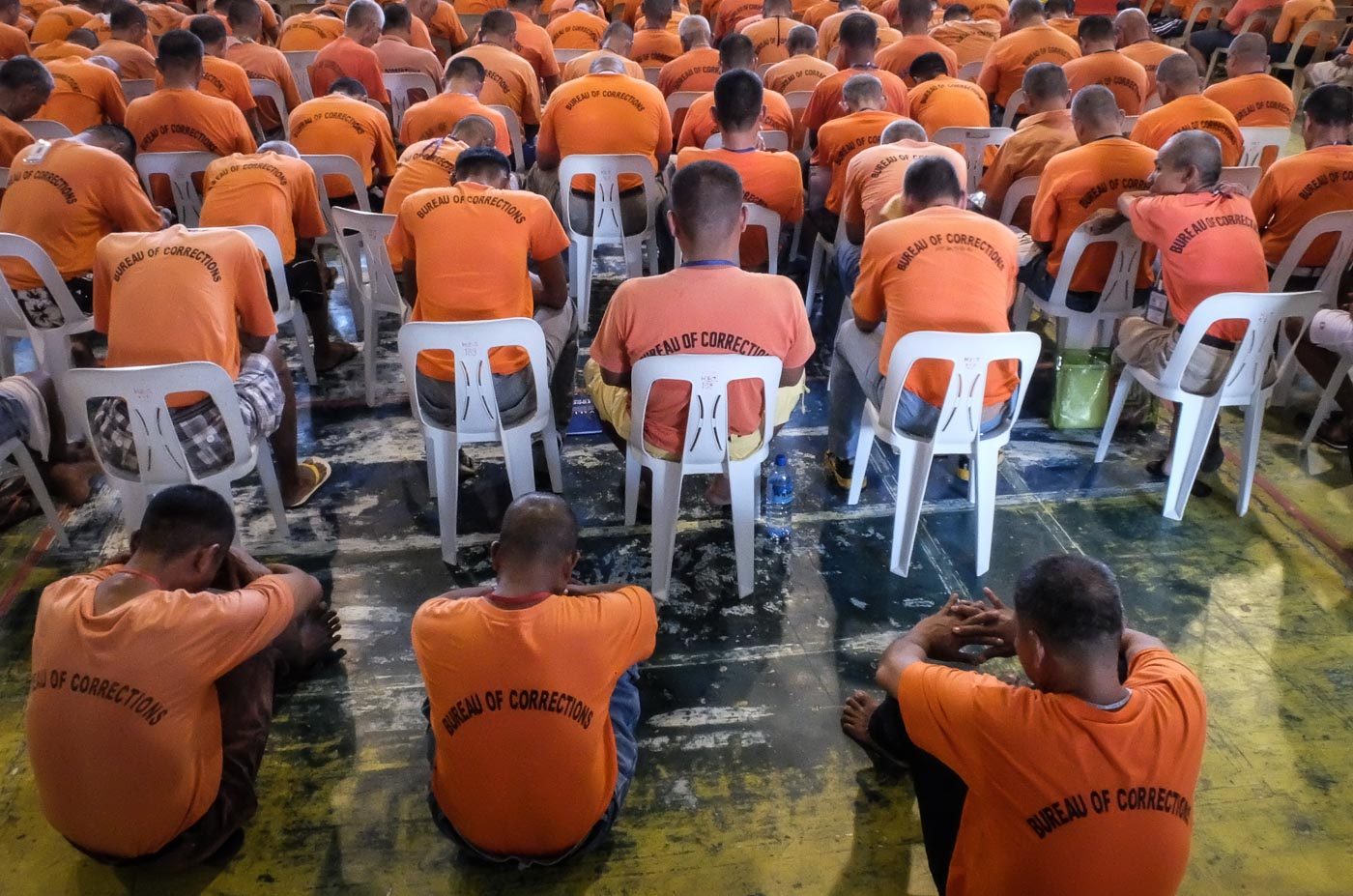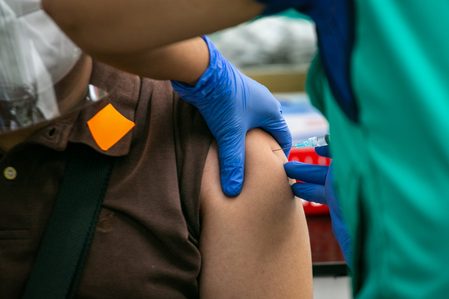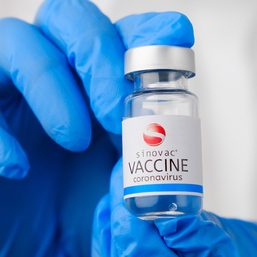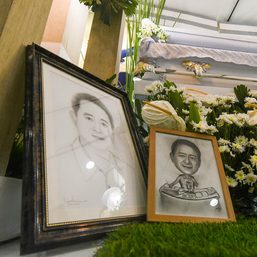SUMMARY
This is AI generated summarization, which may have errors. For context, always refer to the full article.

Prisoners are still in the lower priority group for vaccination even as the law and justice sector – including the paralegals of private litigation lawyers – has been bumped up to the A4 priority group.
The Inter-Agency Task Force (IATF) released on Friday, April 16, an updated list for the A4 priority group for essential frontline workers which now includes “frontline workers in law/justice.”
The vaccination of the A4 group could start by May at the earliest, and could also be moved to June or July, depending on the erratic global supply and the availability of vaccines in the Philippines.
Integrated Bar of the Philippines (IBP) president Domingo “Egon” Cayosa confirmed on Friday that the A4 priority will include litigation lawyers, or the private lawyers who appear in court for their cases.
Justice Secretary Menardo Guevarra said the immediate staff of those private lawyers as also under the A4 group.
“If you’re referring to a lawyer’s staff who deal face-to-face with clients, such as legal secretaries or paralegals, I suppose na puwede silang masama sa A4 (they can be included in A4),” said Guevarra, a senior member of the IATF.
Prosecutors, public attorneys, as well as their staff, and all employees of the judiciary were the first ones to be put under the A4 priority group.
While the priority groups are being updated, prisoners remain in the B group and in one of the lowest brackets at that. They are included in 9th out of the 12 priority groups for “socio-demographic groups at significantly higher risk other than senior citizens and indigent people.”
The general population is technically the 13th group for vaccination.
The updated A4 group also now includes media personnel and religious leaders.
“PDLs (Persons Deprived of Liberty) have not been included, as they are not frontliners. But the Department of Justice (DOJ) will make sure that PDLs will also be vaccinated like everyone else, as they are highly vulnerable to transmission of the COVID-19 virus due to lack of space,” said Guevarra.
Prisoners’ rights group Kapatid called on the government for a clear schedule for the vaccination of prisoners “because the congested prison system places them at significant higher risk for the disease,” said Kaptid spokesperson Fides Lim.
The Commission on Human Rights (CHR) had earlier called for the inclusion of inmates in the priority group for vaccination for the same reason.
“We’ll discuss the matter at the technical level muna (for now),” said Guevarra, in response to these calls.
State of prisons
For convicts, the latest update shows that there have been 32 COVID-19 deaths in Bureau of Corrections (BuCor) facilities. As of April 13, there are 14 active cases and 776 positive cases in total. It wasn’t clear if the list refers to the entire pandemic period or only cases in 2021. BuCor Spokesperson Gabriel Chaclag had yet to respond to a clarification.
Kapatid said “all prisoners [must be] part of the most at-risk populations who need to get the vaccine first because extreme congestion makes prisons a death trap.”
High-profile convicts, including Jaybee Sebastian, died COVID-19 last year within days of each other, raising questions from the Senate, but a legislative inquiry never pushed through.
Rappler found in earlier investigations that in the high death toll at the New Bilibid Prison (NBP) since the pandemic began, dozens of prisoners died without ever being tested for the coronavirus. These lapses raised questions about limited testing in prison facilities, and concerns about not getting a full picture of the state of infections there.
The National Bureau of Investigation (NBI) ruled out foul play in the high-profile deaths, while the high death toll remained unaddressed, although Guevarra admitted last year that BuCor’s protocol for dying inmates was “quite inadequate.” – Rappler.com
Add a comment
How does this make you feel?


![[Rappler’s Best] US does propaganda? Of course.](https://www.rappler.com/tachyon/2024/06/US-does-propaganda-Of-course-june-17-2024.jpg?resize=257%2C257&crop=236px%2C0px%2C720px%2C720px)





![[WATCH] Silent Tragedy: Epekto ng war on drugs sa mga bilangguan](https://www.rappler.com/tachyon/2024/06/silent-tragedy-tcard.jpg?resize=257%2C257&crop_strategy=attention)







There are no comments yet. Add your comment to start the conversation.